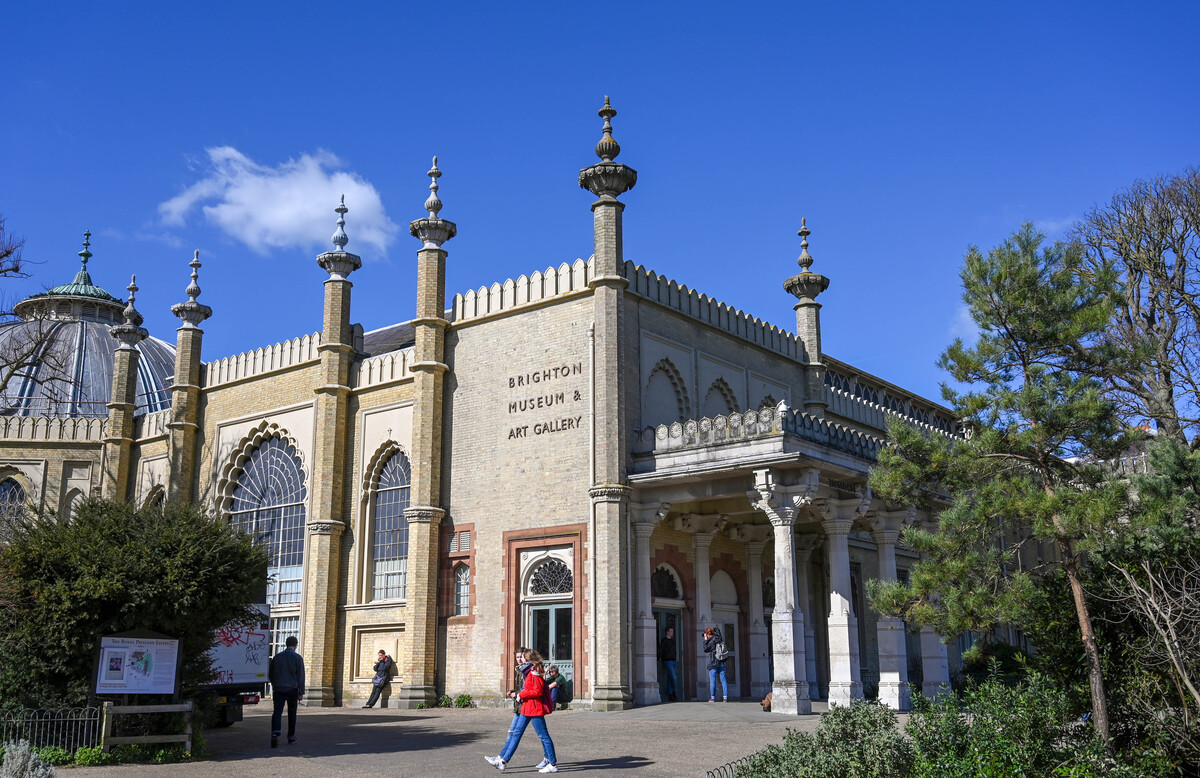Decolonising Our Egypt Galleries

At Brighton and Hove Museums, we are working to decolonise our Ancient Egypt galleries. This means we are trying to tell a more honest story about the objects and history on display.
Decolonising the galleries is important to help us all see the full picture, not just part of the story. This is why our work ties in so well with Black History Month’s theme of “Reclaiming Narratives.” This month is about making sure that Black stories, histories, and voices are heard. In our museum, we are focusing on telling the stories of ancient African cultures, especially Egypt and Sudan, in a fairer and more respectful way.
To start, we have changed some panels in the galleries. Before, the panels focused on European archaeologists like Flinders Petrie. Petrie had racist views, which spilled over into his work. He could never accept that Ancient Egypt was an African culture and pushed the idea that a ‘Caucasoid’ race must have invaded Egypt and introduced their culture. Another panel talked about Brighton Egyptologist Francis Griffith, who trained under Petrie.
We have replaced those panels with new ones that try to centre Egypt and Sudan, rather than Europeans who took their artefacts.
For example, on one new panel we talk about the Nubian Pharaohs. These were kings from Sudan who ruled Egypt over 2,700 years ago. They brought peace and unity to Egypt. This part of African history is often ignored, even though it shows the strength and power of African leadership. By sharing these stories, we aim to make sure that the people of Sudan are seen and celebrated.
We are also talking about how these objects got to Brighton. During the 1800s and 1900s, many European countries ruled parts of Africa, including Egypt. European explorers and collectors took many objects and treasures. These were often given to museums like ours. Today, we ask: should these objects be returned to their countries of origin? Should we keep showing them here in Brighton? We think it’s important to ask these questions and have these discussions.
One of the most important things we can do is listen to the people whose cultures are on display. That’s why we are looking to work with people from Sudanese and Egyptian heritage here in Brighton. We know that it’s their voices, their stories and their ideas that need to be heard.
Decolonising our galleries isn’t easy, and we don’t have a lot of funding to do it quickly. But we believe that even small changes can make a big difference. It’s a small way to stop repeating the wrongs of the past in the way history is presented, and to give respect back to the cultures that these objects came from.
During Black History Month, we want to declare our intentions – so we can be held accountable by and to the people of our city and continue the conversation about whose stories are told and how.
We’re excited to see how this work will grow and how we can keep learning and improving. Our aim is to make sure that the voices of Egypt and Sudan are no longer hidden, but instead, take their rightful place in history.